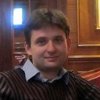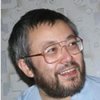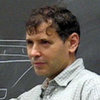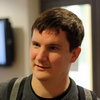CSEDays International Student School on Algorithms and Complexity Theory
From June 29 to July 1, 2013 in Yekaterinburg will host the international student school CSEDays on algorithms and complexity theory . The list of teachers turned out to be very impressive, let me tell you about them here in a nutshell.
In general, I highly recommend it. Participation in the school is free . The school will be held immediately after the 8th International Computer Science Symposium in Russia conference . School participants can attend conference reports without paying org. installment.
 | Konstantin Makarychev (Microsoft Research) Young, but already very successful scientist. Specialist in approximate algorithms and Unique games conjecture (a hypothesis from which results are derived on non-proximity for many NP-hard problems). |
 | Alexander Shen (Montpellier Laboratory of Informatics, Robotics, and Microelectronics and IPPI RAS) Probably needs no introduction. A specialist in the field of complexity theory. The author of many wonderful textbooks, such as, for example, “Programming: Theorems and Problems”. He is also the editor of the translation (and, in fact, the main translator) of the first edition of the classic textbook Cormen, Leiserson, Rivest "Algorithms: construction and analysis." |
 | Mario Szegedy (Rutgers University) Twice winner of the Godel Prize, awarded annually for outstanding articles in theoretical computer science. The first time was for contributing to the proof of the PCP theorem (probabilistically verifiable proofs) and its application to non-proximity results, the second for working in the field of streaming algorithms. |
 | Ryan Williams (Stanford University) Also a young star. His recent result that the NEXP class is not contained in the ACC 0 class is called one of the most significant achievements in circuit complexity over the past 20 years. And this is far from his only result. Also, for example, he showed how to find the maximum cut in a graph faster than exhaustive search with unexpected and elegant use of quick matrix multiplication. |
